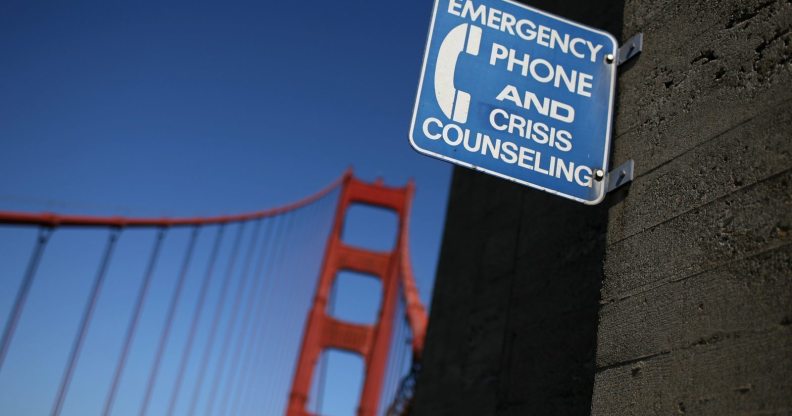Suicide risk five times higher for less educated gay and bisexual men, study finds

(Photo by Justin Sullivan/Getty Images)
A new study has found that gay and bisexual men with less education and income are at a higher risk of suicide.
The study suggests that they face significantly greater mental health challenges than their wealthier counterparts.
Researchers spoke to more than 8,000 gay and bisexual men for the Journal of Homosexuality in Canada.

“Less-educated men might feel a greater sense of hopelessness because they see few options to improve their lot, compared to their peers, who could address their poverty by using their education,” said study lead author Olivier Ferlatte, a postdoctoral research fellow at the University of British Columbia.
145 of the 8,000 men surveyed had thought about taking their own lives in the previous year.
“The number of gay and bisexual men who die by suicide is comparable to those who die from HIV/AIDS.
“Yet we know little about the factors contributing to this health crisis and particularly about how social factors and suicidal behaviors intersect,” Ferlatte said in a university news release.
“Our study is the first in Canada to analyze how socioeconomic factors like income and education are associated with suicide risks for these men,” he said.
RELATED: Royals pay tribute to trans charity at Mental Health Day reception
The number fell among bisexual men who were in relationships with women.
This is likely as they feel less pressure while not in a visible minority, researchers said.
“For a bisexual man, having a female partner is probably protective in that it shields them from the stress of being a member of a visible minority and from potential discrimination.
“As gay and bisexual men are not affected by suicide equally, interventions should acknowledge the diversity of experiences in this community,” he explained.
“We have to make sure that messages are relevant and available to men with lower income and education levels. Information about suicide, mental health and available resources must be specific to their needs and easy to understand,” Oliffe said.
If you have been affected by issues in this article, and live in the UK, call the Samaritans on 116 123. If you are a young person in the US in crisis, feeling suicidal, or in need of a safe and judgment-free place to talk, call the Trevor Lifeline now at 866-488-7386. If you are an adult in need of support in the US, please call the National Suicide Prevention Helpline on 1-800-273-8255. If you are in Australia, contact the Australian Samaritans.

